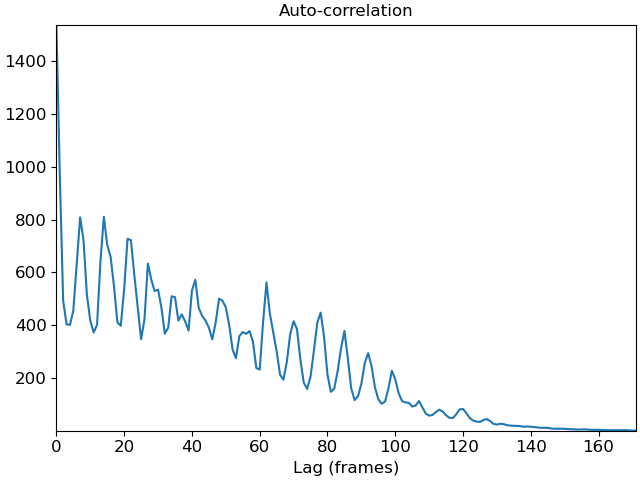Caution
You're reading the documentation for a development version. For the latest released version, please have a look at 0.11.0.
librosa.autocorrelate
- librosa.autocorrelate(y, *, max_size=None, axis=-1)[source]
Bounded-lag auto-correlation
- Parameters:
- ynp.ndarray
array to autocorrelate
- max_sizeint > 0 or None
maximum correlation lag. If unspecified, defaults to
y.shape[axis](unbounded)- axisint
The axis along which to autocorrelate. By default, the last axis (-1) is taken.
- Returns:
- znp.ndarray
truncated autocorrelation
y*yalong the specified axis. Ifmax_sizeis specified, thenz.shape[axis]is bounded tomax_size.
Notes
This function caches at level 20.
Examples
Compute full autocorrelation of
y>>> y, sr = librosa.load(librosa.ex('trumpet')) >>> librosa.autocorrelate(y) array([ 6.899e+02, 6.236e+02, ..., 3.710e-08, -1.796e-08])
Compute onset strength auto-correlation up to 4 seconds
>>> import matplotlib.pyplot as plt >>> odf = librosa.onset.onset_strength(y=y, sr=sr, hop_length=512) >>> ac = librosa.autocorrelate(odf, max_size=4 * sr // 512) >>> fig, ax = plt.subplots() >>> ax.plot(ac) >>> ax.set(title='Auto-correlation', xlabel='Lag (frames)')
